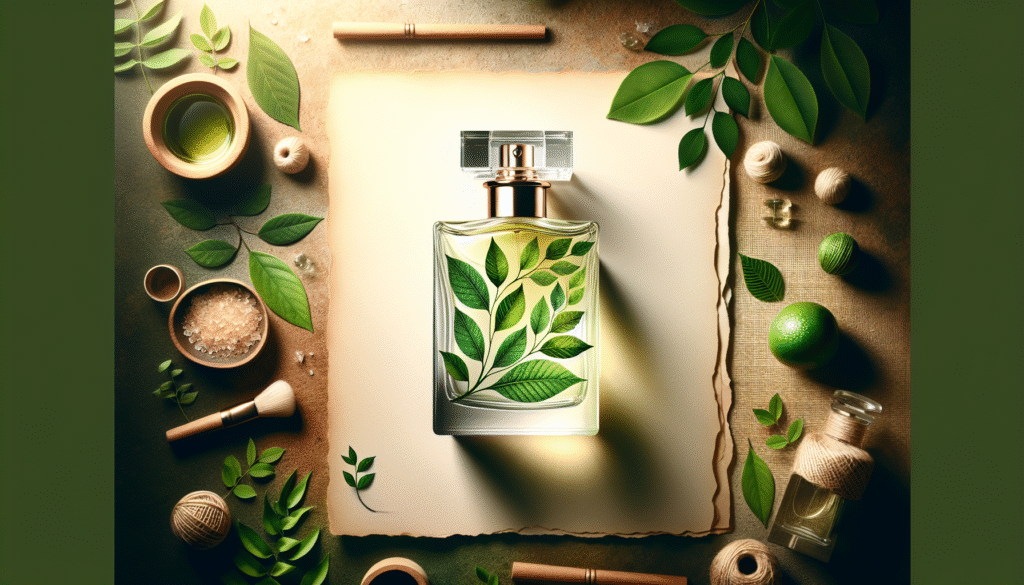Have you ever considered the environmental impact of the perfumes you choose? As people become more conscious of their environmental footprint, the spotlight on sustainable and eco-friendly products continues to shine bright. This awareness extends to everything from what we eat to what we wear, and yes, even to the perfumes we use. Perfumes are not just about fragrance; they can also be a reflection of values, including a commitment to sustainability and the environment.

This image is property of images.pexels.com.
Why Choose Eco-Friendly and Sustainable Perfumes?
Embracing eco-friendly and sustainable perfumes is more than just a trend; it’s a tangible way to contribute to the health of our planet. Traditional perfumes often contain synthetic chemicals and are packaged in materials that are harmful to the environment. By choosing sustainable perfumes, you’re supporting brands that prioritize natural ingredients, ethical sourcing, and environmentally conscious packaging. Not only do these perfumes align with eco-friendly practices, but they also tend to offer purer scents and are often less likely to trigger allergies.
What Makes a Perfume Sustainable?
Let’s clarify what it means for a perfume to be considered sustainable. Fundamentally, sustainability in the context of perfumes involves:
- Natural Ingredients: Sustainable perfumes leverage natural ingredients over synthetic ones. These include plant-based extracts and essential oils.
- Ethical Sourcing: This involves procuring ingredients in a manner that protects ecosystems and respects the rights and well-being of communities involved.
- Eco-Friendly Packaging: Sustainable perfume brands often use recyclable or biodegradable packaging to minimize environmental waste.
- Cruelty-Free Practices: Brands committed to sustainability avoid animal testing and prioritize vegan formulations.
- Carbon Neutral Operations: Some brands take steps to offset their carbon footprint, whether through renewable energy or carbon credits.
Top Picks: Eco-Friendly and Sustainable Perfume Brands
Below, discover some of the best brands that embody these sustainable values, ensuring you smell good while doing good.
1. Maison Louis Marie
Maison Louis Marie is celebrated for its clean compositions and a commitment to preserving the environment. The brand uses renewable energy in the production process and avoids using coal, leading to a lower carbon footprint. Each product is vegan, cruelty-free, and free from parabens.
2. Ellis Brooklyn
Founded by renowned columnist Bee Shapiro, Ellis Brooklyn is synonymous with luxury and sustainability. Their perfumes feature clean ingredients, excluding phthalates and parabens, and are housed in glass bottles produced by environmentally-conscious methods.
3. Ffern
Ffern takes a seasonal approach to their perfumes, releasing limited batches crafted from the highest quality organic ingredients. Their commitment to sustainable practice extends to biodegradable packaging and the planting of trees for every bottle sold.
4. Abel Odor
Founded in Amsterdam, Abel Odor blends artistry with sustainability, using only 100% natural ingredients. Their mission is rooted in creating a positive impact throughout the lifecycle of their perfumes, ensuring minimal environmental impact.
5. Lush
Known worldwide for its fresh handmade cosmetics, Lush brings its eco-conscious ethos to perfumes. Their solid perfumes are packaged in reusable tins or biodegradable wrapping, aligning with the zero-waste movement.
6. Henry Rose
Co-created by actress Michelle Pfeiffer, Henry Rose is notable for its transparency, sharing every ingredient used. The brand is EWG Verified, meaning it meets strict health and transparency standards, and it relies on sustainable materials for packaging.
7. PHLUR
PHLUR offers an array of unique, gender-neutral scents crafted without the inclusion of harmful chemicals. Their bottles are made from recycled glass and their packaging is completely recyclable.
8. By Rosie Jane
This brand enthusiastically embraces sustainability with fragrances that exclude water—using coconut oil as a base instead. By Rosie Jane is also an advocate of sustainable packaging and operates with a carbon-neutral energy system.
How to Choose the Right Sustainable Perfume for You
When embarking on your sustainable fragrance journey, several factors can guide your decision:
- Scent Profile: Just as with traditional perfumes, sustainable perfumes span a broad spectrum of scent profiles — from floral to woody to citrusy. Consider what appeals to you personally.
- Allergies/Sensitivities: Natural ingredients can still trigger sensitivities in some individuals. It’s important to test a small amount before committing to a full purchase.
- Brand Values: Investigate whether a brand’s values align with your own. Some brands emphasize zero-waste while others focus on vegan formulations or supporting fair trade.
- Longevity and Concentration: Pay attention to the concentration of the fragrance, as this will determine its longevity on your skin. Eau de parfum tends to last longer than eau de toilette.

This image is property of images.pexels.com.
The Environmental Impact of Conventional Perfumes
It’s also illuminating to understand what we’re avoiding by choosing sustainable options. Conventional perfumes often rely on synthetic musks and other chemicals that are detrimental to both the environment and human health. These ingredients don’t break down easily, leading to pollution in waterways and adverse effects on aquatic life. Moreover, the production processes for these chemicals can be energy-intensive, contributing significantly to carbon emissions.
Packaging plays a role too. Conventionally, perfumes are packaged using excessive layers of plastic and non-recyclable materials, further exacerbating environmental problems.
The Benefits of Switching to Sustainable Perfumes
Choosing eco-friendly and sustainable perfumes offers several compelling benefits:
- Healthier Ingredients: You avoid synthetic chemicals that could have adverse effects on health.
- Eco-Conscious Packaging: Reduce waste and environmental impact.
- Support Ethical Practices: Purchasing from sustainable brands often supports fair wages and respectful treatments for farmers and workers.
- Refreshing Scents: Sustainable perfumes often offer cleaner, more nuanced scent profiles due to the use of natural ingredients.

This image is property of images.pexels.com.
Key Ingredients Found in Sustainable Perfumes
Understanding common ingredients can enhance your appreciation for sustainable perfumes. Here are some notable components:
- Essential Oils: Extracted from plants, essential oils form the fragrant heart of many natural perfumes. Each oil is unique, offering scents that range from calming lavender to invigorating citrus.
- Absolutes: Similar to essential oils, absolutes are concentrated, highly aromatic oils extracted from plants. They are often used for their deep, intense fragrances.
- Floral Waters: Also known as hydrosols, floral waters are by-products of the essential oil distillation process and are gentle enough for direct skin application.
- Plant-Based Alcohols: Sustainable perfumes often use cane sugar alcohol or other plant-derived alcohols, minimizing the use of synthetic solvents.
Simple Tips for Maximizing Your Sustainable Perfume Experience
Even the most exquisite perfume requires the right care to maximize its potential. Here are some tips to get the most out of your eco-friendly fragrance:
- Store Properly: Keep your perfume in a cool, dark place, away from direct sunlight and extreme temperatures to maintain its integrity.
- Apply to Pulse Points: Apply perfume to pulse points such as your wrists, neck, and behind the ears for enhanced fragrance dispersion.
- Layer Fragrances: Consider layering your perfume with complementary body lotions or oils to increase its longevity on your skin.
- Monitor Changes: Be aware that the scent may evolve over time and with body chemistry, which is especially true for natural compositions.

Overcoming Common Misconceptions About Sustainable Perfumes
The path toward sustainable perfumes is sometimes obstructed by misconceptions, so it’s worthwhile to address these:
- Less Effective: Some believe sustainable perfumes are inherently less effective or potent. On the contrary, natural ingredients can provide rich, satisfying scent profiles when properly crafted.
- Higher Costs: While sustainable perfumes may have a higher upfront investment, they often provide better quality and longevity, balancing the initial cost over time.
- Limited Choices: The eco-friendly market is diverse and continually expanding. You’re likely to find a sustainable fragrance that suits any preference or occasion.
Future Trends in Sustainable Perfumes
The momentum behind eco-friendly perfumes is growing, and several trends are paving the way for a greener future. Brands are investing in technology that further minimizes environmental impact, such as zero-waste packaging innovations and increased transparency to track ingredient sourcing. Additionally, there’s a rise in consumer demand for multifunctional products—fragrances that offer aromatherapy benefits or contain skincare properties.

Final Thoughts
Choosing an eco-friendly and sustainable perfume is a meaningful way to express not only personal style but also commitment to the planet’s health. By supporting brands that value sustainability, you contribute to a cycle of positive change. Take your time exploring different scents and remember that finding your perfect fragrance can be just as rewarding as knowing you’re making a difference. As awareness grows and more consumers opt for eco-friendly options, the availability and innovation in sustainable perfumes will continue to expand, offering an array of delightful scents without compromising our planet’s well-being.




